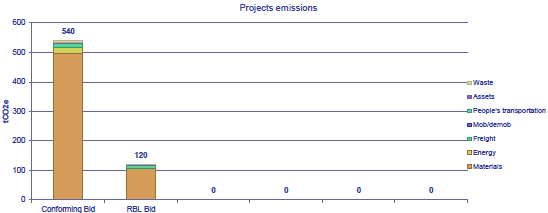PROJECT BRIEF
In 2025, Clark Contracts appointed Roger Bullivant Limited (RBL) to deliver a specialist piling solution for a new 273-bedroom purpose-built student accommodation (PBSA) and tower crane base in the heart of Glasgow City Centre. The site, previously piled in the early 2000s but never developed, presented complex geotechnical challenges due to historical ground densification and transitional soil conditions.
In the early stages, RBL’s Scotland team collaborated with Clark Contracts to develop a bespoke Continuous Helical Auger Displacement (CHAD) piling solution. The CHAD system, unique to RBL, was selected for its ability to deliver high load-bearing capacity, up to 1,800kN per pile, while relieving ground pressure through previously densified soil layers.
KEY ISSUES
Presence of historical piles across the site: This introduced uncertainty around the condition, location, and influence of historical piles on the new foundation system. The presence of these legacy elements required careful consideration to avoid clashes and to ensure that new piles would not be adversely affected by or interact with old foundations.
Highly Transitional Ground Conditions: Despite the compact footprint of the site, the ground conditions varied significantly from North to South. This transition included a wedge of poorer silty clay ranging from 9.0m to 16.0m below ground level, underlain by more competent medium dense to dense sands. These variations posed a challenge for pile design, as a uniform approach would not be suitable across the entire site.
High Structural Load Demands: The PBSA and crane base imposed substantial structural demands on the foundation system. Piles were required to carry serviceability limit state (SLS) loads of up to 1800kN in compression. In addition, the tower crane base introduced significant lateral and uplift forces, with tension loads reaching up to 545kN per pile. These high load requirements necessitated a robust piling solution, capable of delivering performance under complex loading scenarios.
SOLUTION
- Early Collaboration & Site Investigation: RBL and Clark Contracts initiated additional CPT investigations to map the changing strata across the site. RBL identified key locations for testing, which revealed a wedge of poorer silty clay between 9.0mbgl and 16.0mbgl, underlain by medium dense to dense sands.
- Dual Design Approach: Based on the investigation data, RBL adopted two distinct design strategies to accommodate the variable depth to competent bearing strata. This included designing for significant tension loads on crane base piles.
- CHAD Pile Design & Testing: RBL designed 450/750mm diameter CHAD piles to Eurocode standards, with maximum SLS loads of:o 1800kN Compression
o 75kN Lateral
o 545kN Tension (crane base only)
Static load testing was conducted on two working piles, both of which successfully demonstrated settlement of just 4mm and 6mm at SLS, validating the design. - Sustainable & Economical Delivery: This project exemplifies the value of early engagement with RBL to develop technically sound and economically efficient solutions. The CHAD system not only met the demanding structural requirements but also supported sustainable construction practices by optimising material use and minimising ground disturbance.

BENEFITS OF CHAD PILES
- Reduced Spoil Generation: Unlike traditional CFA piles, CHAD piles displace soil rather than extracting it, significantly reducing the volume of spoil and associated disposal costs.
- Enhanced Load Capacity: The displacement process densifies the surrounding soil, improving shaft friction and enabling higher load-bearing capacities, up to 1800kN in compression as demonstrated on this project.
- Efficient Installation: CHAD piles can be installed quickly and cleanly, with less reliance on temporary casing or support fluids, improving programme certainty and site safety.
- Versatility Across Ground Conditions: Capable of penetrating denser strata than standard CHD piles, CHAD is suitable for a wide range of soil profiles, including transitional and layered ground.

